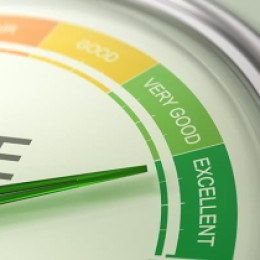
With the home prices stabilizing and even rising in some cities, many people are wondering if now might be the right time to take the plunge into homeownership. Real estate conditions and individual personal financial situations vary dramatically, so there’s no simple yes or no answer. But here are some issues to consider that can help you decide whether buying or renting is best for you:
Can You Afford It?
Today’s low mortgage interest rates can make homeownership look very affordable, but remember that the monthly payment is just the beginning. You’ll also need to budget for property taxes, as well as homeowner’s insurance. Typically, if you put down less than 20% on a property, your lender will also require you to pay for private mortgage insurance (PMI) which protects the lender in case you default. And, if you buy a condominium or a home in planned community with shared amenities, you’ll also have homeowners’ association (HOA) dues and assessments.
A rule of thumb is that these costs, altogether, should comprise no more than 30% of your monthly income. On the plus side, there are some major tax deductions available to homeowners, which can help to offset your costs. And, if home values go up, as they typically do in the long-term, your home could develop into a sizeable retirement nest egg. If you pay off your mortgage before you retire, there is also the peace of mind of having very low housing costs when you are no longer receiving a regular paycheck.
How Long Will You Stay in Place?
One of the biggest risks to buying is that you’ll want or need to move, and be unable to sell your home without taking a loss. Part of that relates to the unpredictability of the housing market – no one can know for sure what a property will be worth in the future – and part has to do with the upfront costs of buying, such as closing costs.
Because of these issues, many experts say you shouldn’t even consider buying unless you expect to stay in the home at least five or more years, enabling you to build up some equity. Of course, if you expect to stay in place for a long time, and have fairly stable income and an affordable mortgage, fluctuations in the housing market will be less concerning to you.
What About Maintenance?
Do you love working in the garden, or taking on do-it-yourself projects? Then that fixer-upper you have your eye on could be a great opportunity to gain sweat equity, and enjoy the house of your dreams! If you get a headache just thinking about those sorts of things, though, you may be happier renting, where you can turn over such chores to a landlord, and move out when the place no longer suits your needs.
With a home, it’s also important to have an emergency fund to cover maintenance and repair costs that are not covered by insurance. A condominium or townhouse may be a good compromise for people who want a home of their own, but don’t want to be completely responsible for all property maintenance.
Written by BALANCE, a free financial resource for American First Credit Union members. Learn more at our partnership site with BALANCE.










